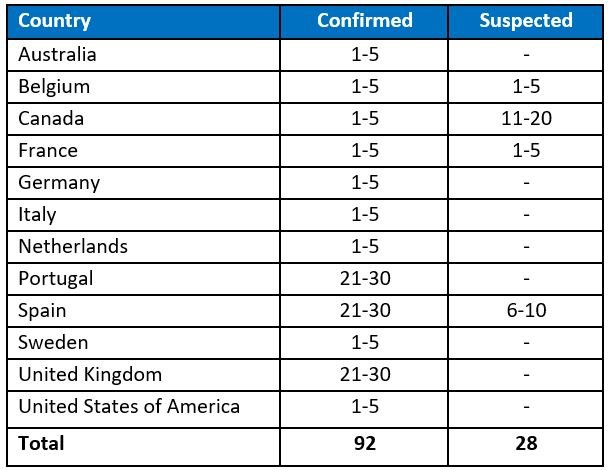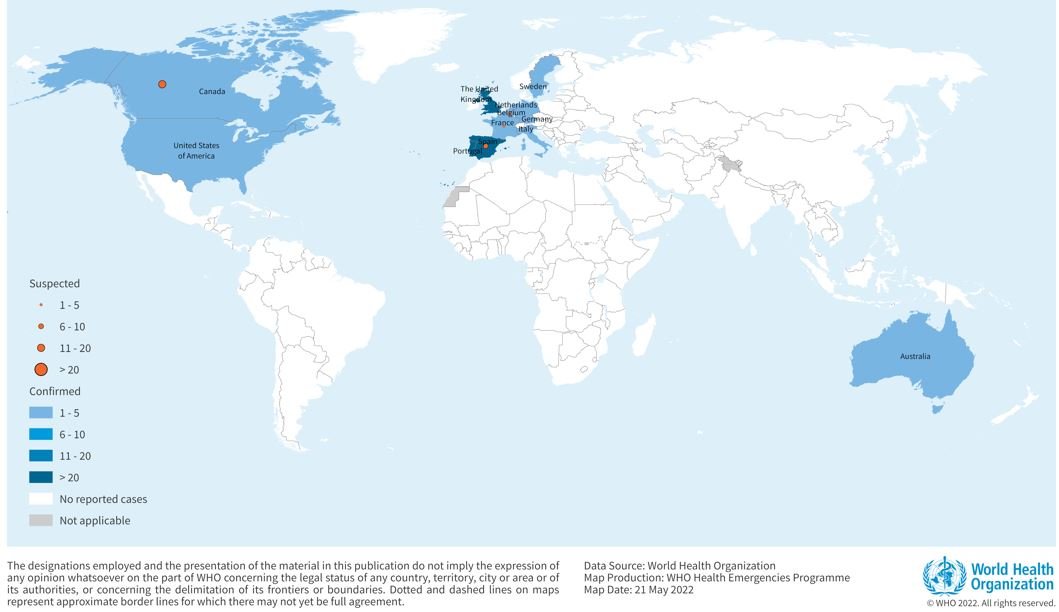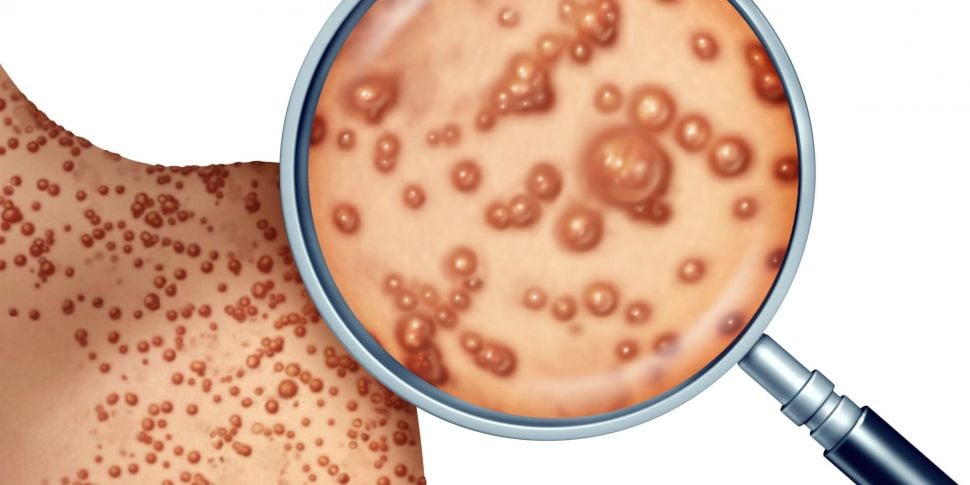Updated: Monday May 23rd, 07.55
More cases of monkeypox are likely to be reported, the World Health Organisation (WHO) has warned.
Cases have been confirmed in several countries including Belgium, France, Germany, Italy, Portugal, Spain, Sweden and the UK.
While scientists at the US Centres for Disease Control (CDC) say they are 'collaborating' with Massachusetts authorities to investigate a US resident who tested positive for monkeypox on May 18th, after returning from Canada.
The CDC says it is also tracking "multiple clusters of monkeypox" reported in several countries.
The virus has so far been reported from 11 countries that normally don't have the disease.
 Source: WHO
Source: WHOThe WHO says it is working with these countries and others to expand surveillance and provide guidance.
There are 92 laboratory confirmed cases, and 28 suspected cases of monkeypox with investigations ongoing.
Monkeypox causes a disease with symptoms similar, but less severe, to smallpox.
While smallpox was eradicated in 1980, monkeypox continues to occur in countries of Central and West Africa.
 Source: WHO
Source: WHO'Concerns' for the summer
Dr Hans Kluge is WHO regional director for Europe. Speaking on Friday, he said these recent cases are unusual for several reasons.
"Firstly, because in this instance all but one of the recent cases have no relevant travel history to areas where monkeypox is endemic, in West Africa or Central Africa.
"Secondly, because most of the initial cases found are being detected through sexual health services and are among men who have sex with men.
"And thirdly, because of the geographically dispersed nature of the cases across Europe and beyond, this suggests that transmission may have been ongoing for some time."
However he said that most of the cases currently under investigation are "so far mild."
"Monkeypox is usually a self-limiting illness, and most of those infected will recover within a few weeks without treatment", he said.
While Dr Kluge said he had concerns as more people mix at summer events.
"As we enter the summer season in the European region - with mass gatherings, festivals and parties - I am concerned that transmission could accelerate, as the cases currently being detected are among those engaging in sexual activity, and the symptoms are unfamiliar to many."
How is it transmitted?
The disease is transmitted from animals to humans.
While cases are often found close to tropical rainforests, where there are animals that carry the virus.
Evidence of monkeypox virus infection has been found in animals including squirrels, Gambian poached rats, dormice and different species of monkeys.
 A monkeypox patient. Picture by: RGB Ventures / SuperStock / Alamy Stock Photo
A monkeypox patient. Picture by: RGB Ventures / SuperStock / Alamy Stock PhotoBut the WHO says human-to-human transmission is limited.
It says: "The longest documented chain of transmission being six generations, meaning that the last person to be infected in this chain was six links away from the original sick person."
It can be transmitted through contact with bodily fluids, lesions on the skin or on internal mucosal surfaces - such as in the mouth or throat.
Symptoms
Monkeypox presents with fever, an extensive rash and usually swollen lymph nodes.
But the WHO adds that it is important to distinguish monkeypox from other illnesses such as chickenpox, measles, bacterial skin infections and scabies.
The incubation period of monkeypox can range from five to 21 days.
And the proportion of patients who die has varied between 0 and 11% in documented cases, and has been higher among young children.
How can it be treated?
Treatment of monkeypox patients depends on the symptoms.
Various compounds that may be effective against the virus are being developed and tested.
There is no specific vaccine for monkeypox.
However the WHO says vaccines against smallpox have been shown to be "85% effective" in preventing monkeypox in the past.









